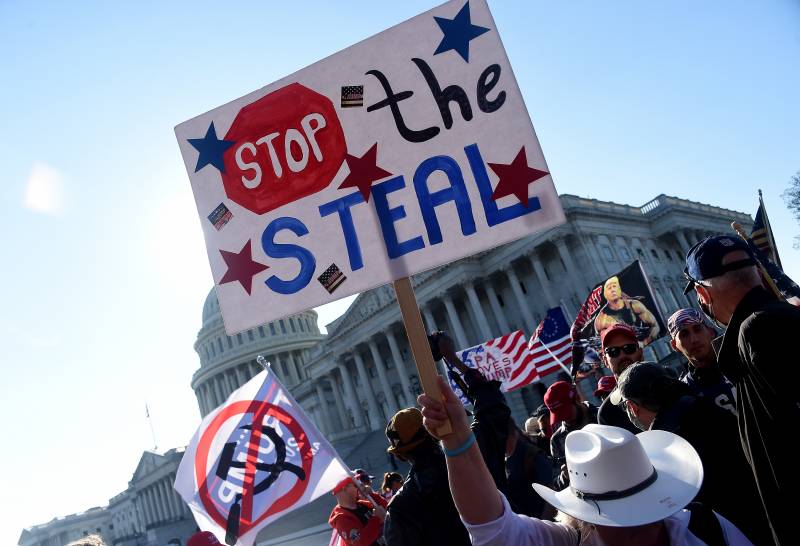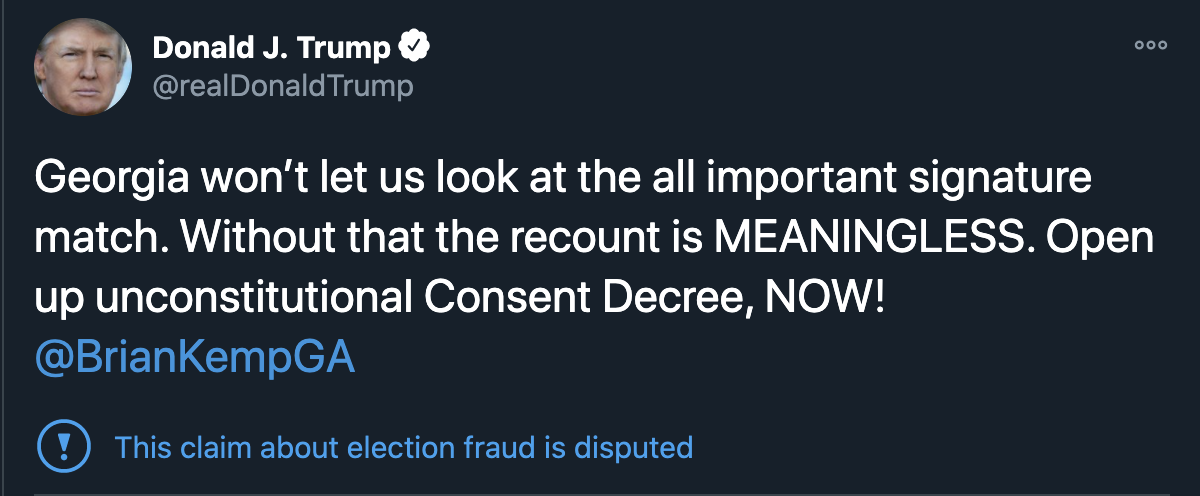This week, Twitter CEO Jack Dorsey and Facebook CEO Mark Zuckerberg are expected to testify at a congressional hearing called by Republican lawmakers upset that the platforms limited the reach of an unsubstantiated New York Post article critical of Hunter Biden, the son of President-elect Joe Biden.
“It seems like where we’re heading is two competing social media ecosystems if leaders from across the political spectrum and across civil society don’t restore public trust,” Goldenberg said. “Because if there’s no public trust in our institutions, people are going to look elsewhere for answers, and where they find those answers could be very dark places.”
So, if labeling certain posts as being disputed or potentially containing misinformation is pushing users toward these third-party sites, should Facebook, Twitter and YouTube stop doing it?
“I still think that they need to do what they’re doing,” said professor Jenn Daskal, who directs the Tech, Law and Security Program at American University Washington College of Law. “Adding labels to speech that is clearly blatant misinformation is good, adding friction to the platforms to reduce virality of conspiracy theories and other forms of misinformation is helpful.”
She added, “It ought to be where all political persuasions can communicate and interact as long as they are doing so in ways that are not purposefully disseminating blatantly false information. As long as they are not engaging in ways that are inciting violence. And that seems to me to be the right set of rules.”
Cable TV’s fractured universe of news and talk filtered through partisan lenses suggests the future of social media, as Daskal sees it.
“The risk is that people end up on closed sites where everyone agrees with them. But the benefit is that it’s harder to reach a broader audience as a result,” Daskal said.
That may not be a problem for extremists banned from the major platforms, like talk-show host Alex Jones or the neo-fascist Proud Boys, both of which have established large followings on Parler.
But it’s worth noting Facebook and Twitter rarely go so far as to delete the accounts of prominent conservatives like Ted Cruz and Rand Paul, R-Kentucky — and most of them have not deleted their accounts on the big platforms. Bartiromo, for example, has publicly decried Twitter in recent weeks, but she continues to tweet even as she commonly includes the copy, “On Parler @Mariabartiromotv.”
It’s not hard to imagine why Bartiromo stays. Twitter has more than 300 million active users, a number that dwarfs those seen on any “free speech” alternative platform.
Then there’s Facebook, which claims more than 3 billion users across its three core platforms, including Instagram and WhatsApp. #MassExitOffFacebook? Not likely.


